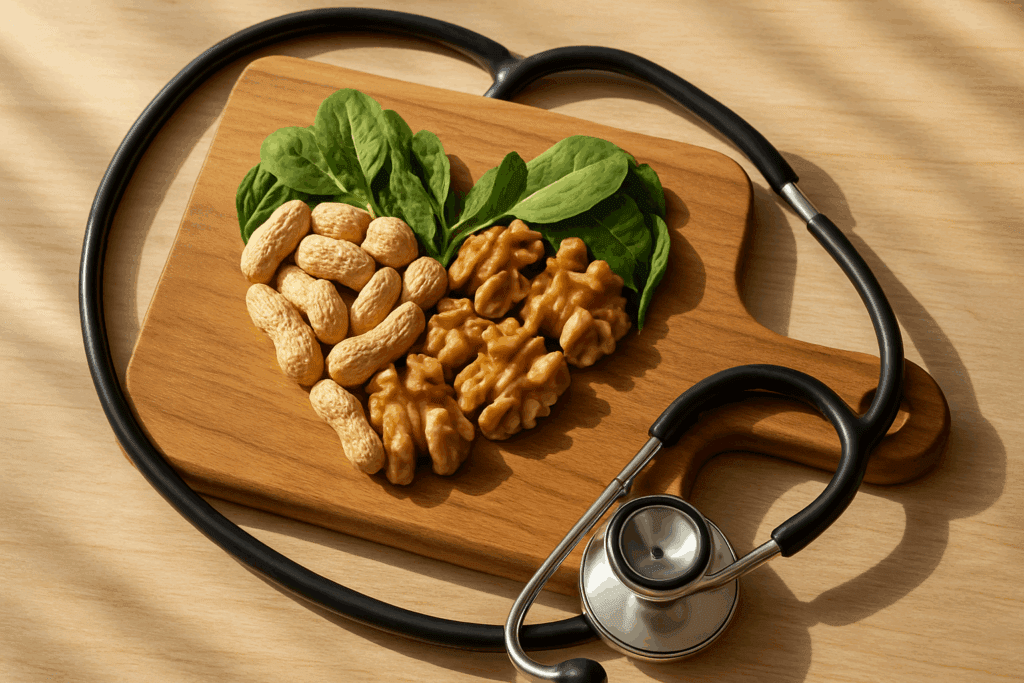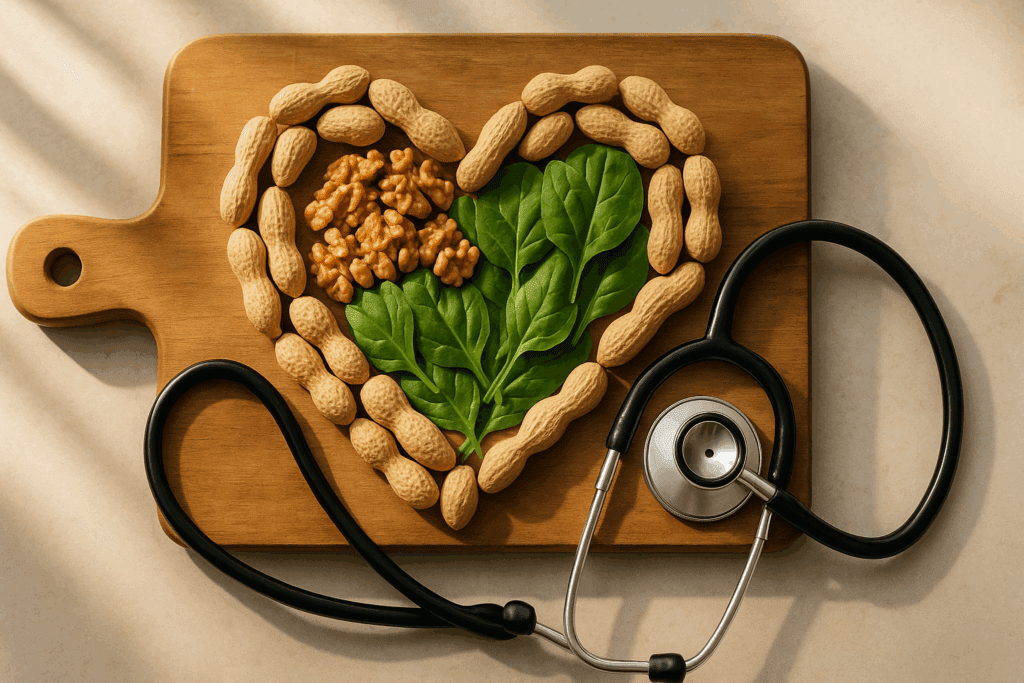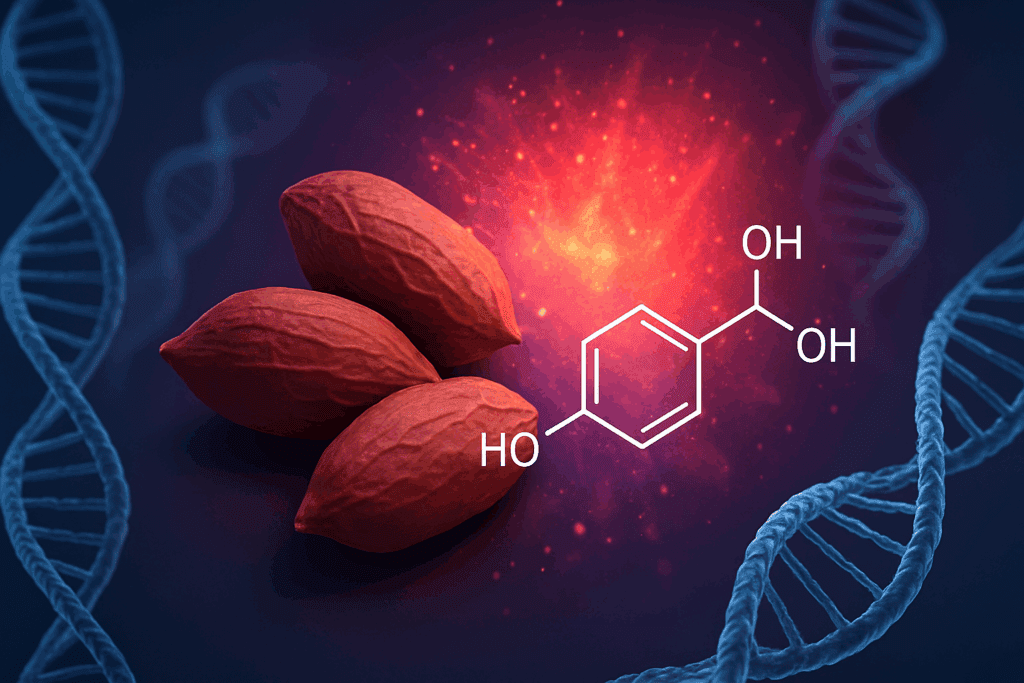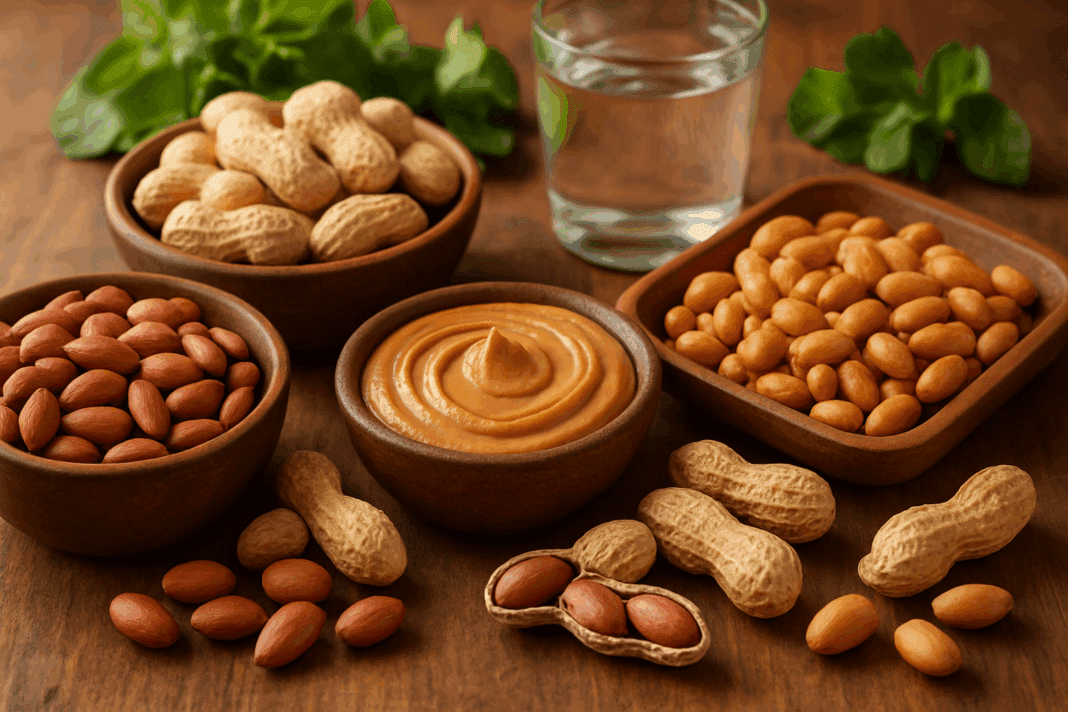Understanding the role of peanuts in a healthy diet is a topic that continues to spark interest across health-conscious communities, nutrition researchers, and consumers navigating the supermarket aisle. Known for their versatility and affordability, peanuts are widely consumed in roasted, salted, raw, and buttered forms. Yet, as common as they are, questions still linger: Are peanuts a healthy food or not? Do the benefits of peanuts outweigh potential risks? And what does current science say about how peanuts health impacts the body in the short and long term? These are not simple yes-or-no questions, but ones that require exploration through the lens of credible nutritional science and contextual dietary needs.
You may also like: 4 Ways to Have a Healthy Diet: Expert Tips Backed by Science for Better Nutrition and Long-Term Wellness
The Nutritional Composition of Peanuts
To determine whether peanuts are healthy, we must first understand what they bring to the table from a nutritional perspective. Peanuts are technically legumes, but they exhibit nutritional properties similar to tree nuts. One ounce of dry-roasted peanuts (approximately 28 grams) contains about 170 calories, 7 grams of protein, 14 grams of fat (mostly unsaturated), 4 grams of carbohydrates, and a significant amount of vitamins and minerals. These include niacin, folate, vitamin E, magnesium, phosphorus, and manganese. They are also a rich source of plant-based protein, which makes them an appealing option for vegetarians and individuals seeking to diversify protein intake beyond animal products.
From a macronutrient standpoint, the high fat content might appear concerning at first glance. However, the majority of fats in peanuts are monounsaturated and polyunsaturated fatty acids—types known to support heart health when consumed in place of saturated fats. Additionally, peanuts contain dietary fiber and bioactive compounds like polyphenols and resveratrol, which contribute antioxidant properties. When asking if peanuts are healthy, this robust nutritional profile supports the argument in their favor, particularly when they are consumed in moderation and as part of a balanced diet.
Cardiovascular Health and Cholesterol Management
One of the strongest cases for why peanuts are healthy lies in their relationship with cardiovascular health. Numerous studies have investigated nut consumption and cardiovascular outcomes, and while many of these focus on tree nuts, peanuts are often included due to their similar lipid profile. Research published in the American Journal of Clinical Nutrition and the Journal of the American College of Cardiology has shown that regular consumption of peanuts is associated with a reduced risk of heart disease.
This cardioprotective effect is attributed to several factors. The healthy fats in peanuts help improve lipid profiles by reducing LDL cholesterol (often labeled “bad cholesterol”) and maintaining or slightly raising HDL cholesterol (“good cholesterol”). Peanuts also help regulate blood pressure due to their potassium and magnesium content. Moreover, their antioxidant properties reduce oxidative stress and inflammation, two processes that play a role in atherosclerosis, the buildup of plaque in arteries. As such, including peanuts in a heart-conscious diet aligns with evidence-based practices for preventing cardiovascular disease.
Weight Management: Friend or Foe?
A frequent concern among health-conscious consumers is whether peanuts, due to their calorie density, contribute to weight gain. Interestingly, the evidence suggests otherwise when peanuts are eaten in appropriate portions. While it’s true that peanuts are energy-dense, studies have found that their inclusion in the diet does not promote weight gain and may even support weight management.
This paradox is explained by several mechanisms. First, peanuts are satiating, meaning they promote feelings of fullness that can reduce overall calorie intake. Second, the body does not absorb all the fat from whole peanuts due to the way fat is stored in the cell matrix, which leads to lower net caloric absorption. Third, the protein and fiber content of peanuts helps stabilize blood sugar levels, minimizing energy crashes that can lead to overeating. These factors suggest that peanuts health benefits extend beyond simple nutrition and into behavioral aspects of eating.

Diabetes and Blood Sugar Control
Another dimension to the conversation about whether peanuts are a healthy food involves their effect on blood sugar levels and insulin sensitivity. For individuals with type 2 diabetes or prediabetes, glycemic control is paramount. Fortunately, peanuts have a low glycemic index, meaning they cause a slow, gradual rise in blood glucose after consumption. This is beneficial for blood sugar management and can reduce the risk of insulin resistance over time.
Furthermore, studies have shown that diets rich in unsaturated fats—like those found in peanuts—are associated with improved insulin sensitivity. In particular, when carbohydrates are replaced with unsaturated fats in meals, postprandial glucose responses are significantly moderated. Peanuts also contain arginine, an amino acid that supports endothelial function and may enhance glucose uptake by cells. These findings underscore the idea that peanuts health value includes measurable metabolic benefits, making them a suitable snack for individuals managing or at risk for metabolic disorders.
Cancer Prevention and Antioxidant Effects
The question “are peanuts a healthy food?” also requires us to consider their impact on long-term disease risk, including cancer. While peanuts themselves are not classified as a cancer-preventive food per se, they do contain several bioactive compounds that have been studied for their potential role in cancer prevention. Resveratrol, for example, is a compound more commonly associated with red wine but is also found in the skin of peanuts. It exhibits anti-inflammatory, antioxidant, and antiproliferative effects in laboratory studies.
In addition, peanuts provide vitamin E and a range of polyphenols that neutralize free radicals, reducing the risk of DNA damage that can lead to cancer. Epidemiological studies suggest that diets high in nuts and legumes are associated with a lower incidence of certain cancers, including colorectal and pancreatic cancers. While causality cannot be definitively established, these correlations further support the inclusion of peanuts as part of a nutritionally diverse and protective diet.

Are Roasted Peanuts Seeds Good for You?
A commonly asked question among consumers is whether roasting alters the health benefits of peanuts or introduces any risks. In terms of structure, peanuts are technically legumes, but because they resemble seeds in function and form, some refer to them as such. So, are roasted peanuts seeds good for you?
The answer depends on the method of roasting and what, if anything, is added during processing. Dry-roasted peanuts, especially those without added salt, retain most of their nutritional content, including protein, healthy fats, and key micronutrients. Roasting can slightly reduce levels of heat-sensitive nutrients like certain polyphenols and B vitamins, but the impact is generally modest. Additionally, roasting enhances flavor and can improve digestibility by reducing antinutrients like phytic acid.
However, concerns arise with oil-roasted peanuts that are salted or flavored with sugars, preservatives, or unhealthy fats. These variations can compromise health benefits and increase sodium or trans fat intake. Therefore, while roasted peanuts are healthy in many cases, consumers should read labels carefully to choose minimally processed options. This nuance helps answer the broader question: are roasted peanuts seeds good for you? Yes, when consumed in their purest forms and in moderation.
Food Allergies and Peanut Sensitivities
No discussion of peanuts health would be complete without addressing the issue of food allergies. Peanuts are among the eight major food allergens identified by the U.S. Food and Drug Administration (FDA), and peanut allergies are often lifelong, with the potential to cause severe anaphylactic reactions. For individuals with peanut allergies, even trace amounts can be dangerous.
While this reality does not diminish the health benefits of peanuts for the general population, it highlights the importance of personalized nutrition. The rise in peanut allergies, especially among children, has prompted the development of early exposure guidelines and research into desensitization therapies. Additionally, food labeling laws require clear identification of peanut content, helping individuals avoid accidental exposure. Thus, while peanuts are healthy for most, they are categorically unsafe for others, and this dichotomy must be respected in both policy and practice.

Peanuts and Gut Health: A Microbiome Perspective
Emerging research suggests that peanuts may support gut health, particularly through their content of dietary fiber and polyphenols. Fiber serves as a prebiotic, providing fuel for beneficial gut bacteria that in turn produce short-chain fatty acids (SCFAs) such as butyrate. SCFAs play a critical role in maintaining intestinal barrier function, modulating inflammation, and supporting overall digestive health.
Additionally, polyphenols found in peanuts interact with gut microbiota in complex ways, influencing microbial diversity and metabolic activity. Some studies indicate that regular peanut consumption can increase the abundance of beneficial bacterial strains like Lactobacillus and Bifidobacterium. While the science is still developing, these initial findings provide yet another reason to consider how peanuts are healthy when evaluated holistically.
Sustainability and Economic Impact
Beyond personal health, it’s worth exploring the environmental and socioeconomic dimensions of peanut production and consumption. Compared to animal protein sources, peanuts have a relatively low environmental footprint. They require less water, land, and energy to produce, and they contribute to soil health by fixing nitrogen during growth. From a sustainability standpoint, peanuts align with global goals to reduce agricultural emissions and promote plant-based diets.
Economically, peanuts are an important cash crop in many countries and contribute to food security due to their affordability and shelf stability. In regions where malnutrition is prevalent, peanuts and peanut-based products like Plumpy’Nut have been used successfully in therapeutic feeding programs for children. These applications add another layer to the question: are peanuts a healthy food? Their accessibility and role in combating malnutrition make them not only nutritionally valuable but socially significant.
The Psychology of Peanuts: Comfort Food or Craving?
While often overlooked in nutritional analysis, the psychological relationship people have with food plays a vital role in health outcomes. Peanuts, like many familiar foods, can carry emotional resonance. Peanut butter sandwiches, roasted peanuts at sporting events, and homemade desserts featuring peanuts often evoke nostalgia and comfort. In moderation, this emotional satisfaction can contribute positively to mental well-being and dietary adherence.
However, the flip side is that peanut products, particularly those mixed with sugar, chocolate, or salt, can also become triggers for overeating or binge eating. The combination of fat, salt, and sweetness is known to stimulate reward centers in the brain, potentially leading to overconsumption in vulnerable individuals. Awareness of this duality allows consumers to enjoy peanuts health benefits without falling into psychological traps that compromise long-term wellness.
Comparing Peanuts to Tree Nuts and Other Legumes
To fully evaluate whether peanuts are healthy, it can be helpful to compare them with other members of the nut and legume families. Tree nuts like almonds, walnuts, and pistachios are often touted for their omega-3 fatty acids and higher antioxidant content. However, peanuts hold their own nutritionally and are often more affordable and widely available.
Compared to beans and lentils, peanuts have a higher fat content and lower carbohydrate content, making them suitable for low-carb or ketogenic eating patterns. On the other hand, they provide less iron and fewer complex carbohydrates than traditional legumes, which are staples in plant-based diets. Each food has its own strengths, and integrating a variety of nuts and legumes can yield complementary health benefits. Still, the conclusion remains consistent: peanuts are healthy when consumed thoughtfully and as part of a diverse diet.

Frequently Asked Questions: Peanuts, Nutrition, and Your Health
1. Can eating peanuts daily support long-term heart health?
Absolutely. Scientific evidence suggests that regularly consuming peanuts can promote cardiovascular health due to their high content of unsaturated fats, arginine, and antioxidants like resveratrol. These compounds help reduce LDL cholesterol, improve endothelial function, and lower inflammation—key markers in heart disease prevention. While it’s crucial to consume them in moderation, especially if they are salted or flavored, the overall contribution of peanuts to heart wellness is significant. In the context of ongoing studies, the consensus is that peanuts are healthy when integrated mindfully into a balanced diet. They are not only nutrient-dense but also versatile, making them an ideal heart-smart snack.
2. Are roasted peanuts seeds good for you, or do they lose nutrition when roasted?
Roasted peanuts retain most of their nutritional value, though some sensitive nutrients like certain B vitamins may slightly degrade at high temperatures. However, the roasting process enhances flavor and extends shelf life without significantly compromising health benefits. One concern is that some commercially roasted varieties contain added oils or excessive sodium, which can diminish the benefits. Choosing dry-roasted or lightly salted options can help maintain balance. Ultimately, when asking whether roasted peanuts seeds are good for you, the answer is a resounding yes—especially when consumed in their simplest form.
3. How do peanuts compare to tree nuts in terms of nutritional value?
Peanuts, though technically legumes, share many nutritional similarities with tree nuts such as almonds or walnuts. They offer comparable protein levels and contain a similar profile of heart-healthy fats. However, peanuts have the added benefit of being richer in folate, a B-vitamin important for DNA synthesis and repair. From a budget and accessibility perspective, peanuts are also more affordable while delivering substantial health advantages. So when considering whether peanuts are healthy alternatives to other nuts, they stack up surprisingly well.
4. Are peanuts a healthy food choice for people with diabetes?
Yes, peanuts can be a beneficial addition to the diet of individuals managing diabetes. Their low glycemic index and high fiber content help stabilize blood sugar levels and improve insulin sensitivity. They also contribute to satiety, potentially reducing the temptation to consume high-carb or sugary foods. Several studies have indicated that moderate peanut intake correlates with better glycemic control in diabetic populations. Within the scope of peanuts health, they serve as a powerful nutritional ally for blood sugar management.
5. Can children safely eat peanuts, and are there health benefits specific to kids?
As long as there are no allergies, peanuts can be a valuable part of a child’s diet. They provide plant-based protein, healthy fats, and key vitamins like niacin and vitamin E, which are essential for growth and cognitive development. Pediatricians often recommend introducing peanut-containing foods early in life to potentially reduce the risk of developing allergies. Peanuts are healthy options for children when served in age-appropriate forms to avoid choking hazards. Their ability to support energy levels and brain health makes them a particularly smart snack for school-age kids.
6. Are there environmental or ethical considerations when choosing peanuts as a protein source?
Compared to many animal-based proteins, peanuts have a significantly lower carbon footprint and require less water to produce. They enrich the soil by fixing nitrogen, which improves agricultural sustainability. Choosing plant-based proteins like peanuts can align with eco-conscious lifestyles, especially when sourced from growers who use sustainable farming practices. Beyond personal health, peanuts are healthy for the planet too, adding ethical and environmental appeal to their nutritional benefits. This broader impact makes peanuts a compelling choice for both health-minded and environmentally aware consumers.
7. Is there a best time of day to consume peanuts for maximum benefit?
There isn’t a universal “best” time, but incorporating peanuts into meals or snacks strategically can offer varied advantages. Eating them as a mid-morning or afternoon snack can curb cravings and prevent energy crashes. Including peanuts in a pre-workout meal provides lasting energy due to their protein and fat content. For those managing hunger or weight, consuming peanuts at night may help with satiety and reduce late-night snacking. The bottom line is that peanuts are healthy and beneficial throughout the day when paired with thoughtful eating habits.
8. Do peanuts pose any risks despite their health benefits?
While generally safe and nutritious, peanuts do carry some risks, primarily related to allergies, which can be severe or life-threatening. Additionally, some individuals may experience digestive discomfort if consuming them in large quantities or with skins intact. Another consideration is aflatoxin, a natural mold that can contaminate improperly stored peanuts, though most commercial producers screen rigorously for this. For the majority of consumers, however, the risks are minimal and manageable. The question “are peanuts a healthy food” remains valid when accounting for these nuances.
9. How can peanuts support mental and cognitive health?
Emerging research suggests that peanuts may play a role in cognitive health, thanks to their vitamin E, niacin, and polyphenol content. These nutrients are linked to reduced oxidative stress in the brain and may support memory and focus. Arginine, an amino acid in peanuts, helps improve blood flow, which is essential for brain function. While they are not a standalone cure for cognitive decline, peanuts are healthy contributors to a brain-boosting diet. This adds another layer to their already impressive nutritional profile.
10. What are the latest innovations in peanut-based health foods and supplements?
Food technology has led to the rise of peanut-based protein powders, fortified peanut butters, and functional snack bars aimed at enhancing fitness, recovery, and satiety. There are also peanut flours and oils tailored for specialized dietary needs, such as gluten-free or ketogenic diets. Additionally, fermented peanut products are being explored for gut health benefits. In light of these developments, it’s clear that peanuts health applications extend far beyond traditional snacking. As innovation continues, consumers can expect more diverse and health-focused peanut products in the marketplace.

Conclusion: Why Peanuts Are a Healthy Food Choice When Eaten Wisely
So, are peanuts a healthy food or not? After exploring their nutritional makeup, potential benefits for heart and metabolic health, antioxidant properties, and environmental sustainability, the evidence leans heavily in favor of peanuts as a wholesome and beneficial dietary component. From helping manage weight and blood sugar to supporting digestive and cardiovascular health, peanuts deliver value across multiple domains.
However, like any food, the context matters. Salted, sugar-coated, or heavily processed peanut products may detract from the natural health benefits. Individuals with allergies must avoid peanuts altogether, and those with behavioral eating concerns should remain mindful of their intake. Still, for the vast majority, the answer to whether peanuts are healthy is a resounding yes, especially when they are consumed in moderation, in minimally processed forms, and as part of a nutrient-rich, whole-food diet.
When considering the question “are roasted peanuts seeds good for you?” the answer is similarly nuanced. Roasted peanuts retain the core benefits of raw peanuts, especially when free from excessive additives. Their delicious flavor and satisfying texture make them an easy and enjoyable way to boost nutrient intake, support satiety, and contribute to long-term health goals.
Ultimately, the conversation about peanuts health should move beyond binary thinking and embrace a more nuanced, science-informed perspective. Peanuts are not miracle foods, nor are they dietary villains. They are nutrient-dense, widely accessible, and capable of supporting health when integrated thoughtfully into a well-balanced lifestyle. That, perhaps, is the most meaningful answer to whether peanuts are healthy or not.
Further Reading:
Peanuts 101: Nutrition Facts and Health Benefits


